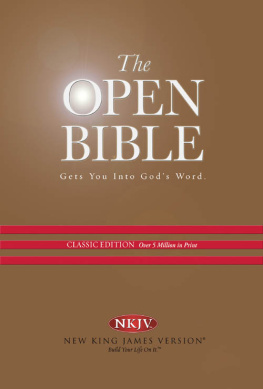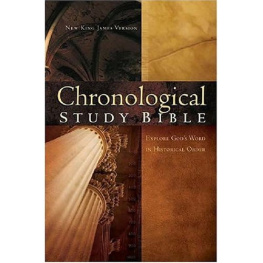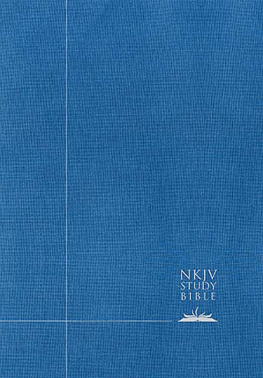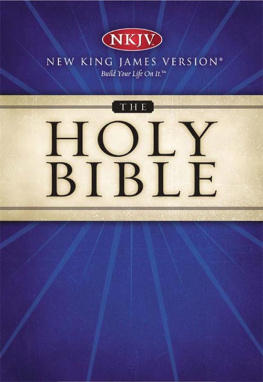Thomas Nelson - The Everyday Bible: New Century Version (NCV)
Here you can read online Thomas Nelson - The Everyday Bible: New Century Version (NCV) full text of the book (entire story) in english for free. Download pdf and epub, get meaning, cover and reviews about this ebook. year: 2002, publisher: Thomas Nelson, genre: Religion. Description of the work, (preface) as well as reviews are available. Best literature library LitArk.com created for fans of good reading and offers a wide selection of genres:
Romance novel
Science fiction
Adventure
Detective
Science
History
Home and family
Prose
Art
Politics
Computer
Non-fiction
Religion
Business
Children
Humor
Choose a favorite category and find really read worthwhile books. Enjoy immersion in the world of imagination, feel the emotions of the characters or learn something new for yourself, make an fascinating discovery.
- Book:The Everyday Bible: New Century Version (NCV)
- Author:
- Publisher:Thomas Nelson
- Genre:
- Year:2002
- Rating:4 / 5
- Favourites:Add to favourites
- Your mark:
- 80
- 1
- 2
- 3
- 4
- 5
The Everyday Bible: New Century Version (NCV): summary, description and annotation
We offer to read an annotation, description, summary or preface (depends on what the author of the book "The Everyday Bible: New Century Version (NCV)" wrote himself). If you haven't found the necessary information about the book — write in the comments, we will try to find it.
The Everyday Bible: New Century Version (NCV) — read online for free the complete book (whole text) full work
Below is the text of the book, divided by pages. System saving the place of the last page read, allows you to conveniently read the book "The Everyday Bible: New Century Version (NCV)" online for free, without having to search again every time where you left off. Put a bookmark, and you can go to the page where you finished reading at any time.
Font size:
Interval:
Bookmark:
The story is told that many years ago, Art Linkletter saw a small boy scrawling wildly on a sheet of paper. What are you drawing? Linkletter asked.
Im drawing a picture of God.
You cant do that, because nobody knows what God looks like.
They will when Im finished, the boy confidently replied.
As senseless as this story is, many of us have based our life beliefs on foundations no more solid than the young boys drawing. It is no surprise that lifes difficulties expose the lack of meaning in our lives and the inadequacy of our sources for answers to the questions of our hearts.
Lets face it, we all have questions in life. When you lay your head down on the pillow at night, what are the questions that you ask? When youre alone in the dark, do you find lifes really hard questions running through your mind? How can I find peace and true contentment? What is the purpose of life? Why am I here? Where have I come from, and where am I going? Is there a God, and if so, what is he like? Can I know God personally? Is there a source of ultimate truth for me to live by?
Many of those questions relate to our faith and our own search for truth. For instance, who has not asked the question, Why does God allow unthinkable acts of terrorism? Or, When my world seems to be falling apart around me, who can I trust? Or, What do I do with my fears? So where do we find the answers? Must we end our days with the same questions staring us in the face? Can our questions be answered, and can we find the peace we are seeking?
We answer that with a resounding Yes! In your hands you hold what reveals the real answersGods Word. The Bible is the most important book and the single most popular book ever written. Within its pages God speaks with divine instruction to multiple generations of people who faced the same life issues and questions that you face today. He reveals himself through his Word and presents the absolute truth that provides the only reliable answers to all of lifes ultimate questions. It dares tackle those questions honestly and openly and offers counsel for our problems, comfort for our sorrows, guidance for our confusion, inspiration for our needs, and hope for our despair.
What Is the Bible About?
The Bible cannot be considered just a crutch that you can turn to when the pressures of life overwhelm you. It is a supernatural book that has survived and thrived through centuries of being scoffed at, ridiculed, and banned. Kings have branded it as illegal, and countless lives have been martyred because they had the courage to stand by its truths. For the millions and millions of people who have tested its answers to lifes questions and found them true, there is only one conclusionthe Bible is Gods book. Every word is inspired by him and reveals something very important about him. From these pages we hear the voice of God.
In reality, the Bible is a library of books. It contains sixty-six different books, which together tell the story of Gods wonderful love for people. It teaches us how to live the way God wants us to live. The Bible reveals the truth about God, explains the origin of humankind, offers the only way to salvation and eternal life in Jesus Christ, and does not sidestep the ancient problem of sin and suffering. Its a book youll want to read and study over and over again.
Who is the Bible for? Most of the books in the Old Testament were written for the Jewish people (also called Israelites). They were the nation God chose to be a part of bringing his Son into the world. Books in the New Testament were written to many others. Sometimes the names of the books give you a clue. For instance, Paul wrote Romans to the Christians who lived in Rome. Other New Testament books were addressed to all of Christs followers. These books were passed around from church to church for everyone to read and hear.
But wait! The Bible was written for you, too. Just as it told the Christians in the first century how to live for God, it tells the same to you, too. Gods Word, the Bible, is a personal guide for everyone who wants to follow God. Its Gods love letter just for you.
So Why the NCV?
The New Century Version is one of the easiest translations of the Bible to understand. It accurately communicates the messages found in the original languages of biblical manuscripts, using the kind of terms you use every day. It uses contemporary phrases, word pictures, and expressions, and replaces vague and overly religious language with down-to-earth vocabulary. The end result is a fresh, straightforward, and strong translation of Gods truth; and it is something you can connect with in your daily life. Youll find it easier to experience Gods Word as it truly isabsolutely clear, powerfully alive, and completely life-changing.
This may be the greatest opportunity you will ever find to read and understand the Bible and to come to a personal understanding of Gods plan for your life. The Bible, it should be remembered, is not an end in itself, but it is a means to the end of knowing God and doing his will on earth. Through his Word we hear his voice and come to understand his mind.
So we challenge you to read the NCV. Anyone who will take the time can see and understand what God has given us in his Word and how it applies to us today. It may be the most important and life-changing step you will ever take.
God intended for everyone to be able to read and understand his Word. The Old Testament is written in Hebrew, the language of the people of Israel. Through the use of vivid stories based on real events and beautiful poetry, it appeals to the minds and hearts of the educated and the uneducated. The New Testament was first written in the simple Greek of everyday life, not in the Latin of Roman courts or the classical Greek of the academies. Even Jesus, the Master Teacher, taught spiritual principles by comparing them to such familiar terms as pearls, seeds, rocks, trees, and sheep. Likewise, the New Century Version translates the Scriptures in familiar, everyday words of our times.
The New Century Version is a translation of Gods Word from the original Hebrew and Greek languages. A previous edition of the complete New Century Version, the International Childrens Bible, was published in 1986.
A Trustworthy Translation
Two basic premises guided the translation process of the New Century Version. The first concern was that the translation be faithful to the manuscripts in the original languages. A team composed of the World Bible Translation Center and fifty additional, highly qualified and experienced Bible scholars and translators was assembled. The team included people with translation experience on such accepted versions as the New International Version, the New American Standard Bible, and the New King James Version. The most recent scholarship and the best available Hebrew and Greek texts were used, principally the third edition of the United Bible Societies Greek text and the latest edition of the Biblia Hebraica, along with the Septuagint.
A Clear Translation
The second concern was to make the language clear enough for anyone to read the Bible and understand it. In maintaining clear language, several guidelines were followed. Vocabulary choice has been based upon The Living Word Vocabulary by Dr. Edgar Dale and Dr. Joseph ORourke (Worldbook-Childcraft International, 1981), which is the standard used by the editors of The World Book Encyclopedia to determine appropriate vocabulary. For difficult words that have no simpler synonyms, footnotes, references, and dictionary definitions are provided. Footnotes appear at the bottom of the page and are indicated in the text by an n (for note). A dictionary with a topical concordance of words and phrases found throughout the text is located at the back of the Bible.
The New Century Version aids understanding by putting concepts into natural terms. Modern measurements and geographical locations have been used as much as possible. For instance, terms such as shekels, cubits, omer, and hin have been converted to modern equivalents of weights and measures. Where geographical references are identical, the modern name has been used, such as the Mediterranean Sea instead of Great Sea or Western Sea. Also, to minimize confusion, the most familiar name for a place is used consistently instead of using variant names for the same place. Lake Galilee is used throughout the text rather than its variant forms, Sea of Kinnereth, Lake Gennesaret, and Sea of Tiberias.
Next pageFont size:
Interval:
Bookmark:
Similar books «The Everyday Bible: New Century Version (NCV)»
Look at similar books to The Everyday Bible: New Century Version (NCV). We have selected literature similar in name and meaning in the hope of providing readers with more options to find new, interesting, not yet read works.
Discussion, reviews of the book The Everyday Bible: New Century Version (NCV) and just readers' own opinions. Leave your comments, write what you think about the work, its meaning or the main characters. Specify what exactly you liked and what you didn't like, and why you think so.

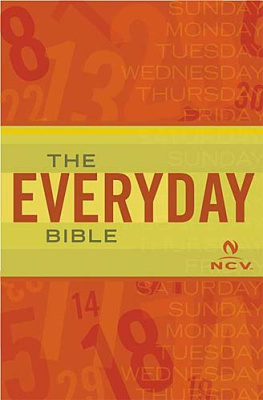
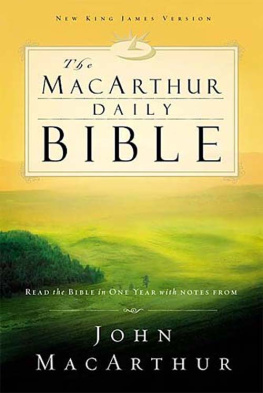
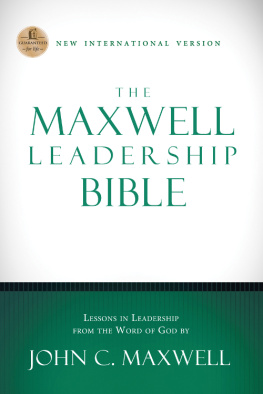
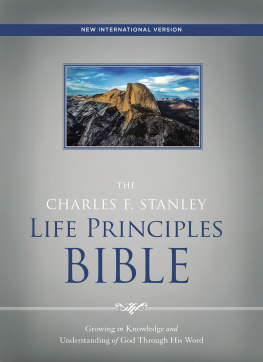
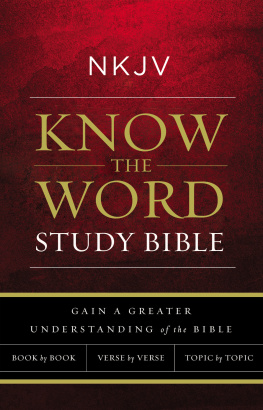
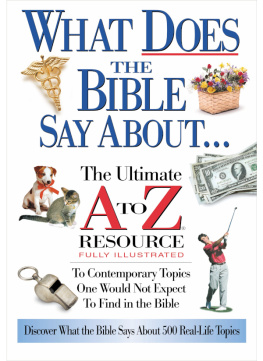


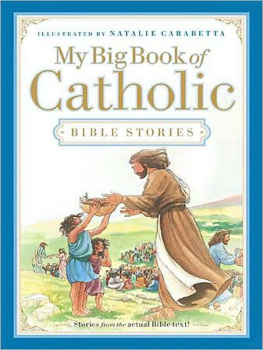
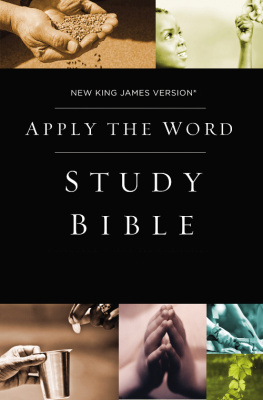
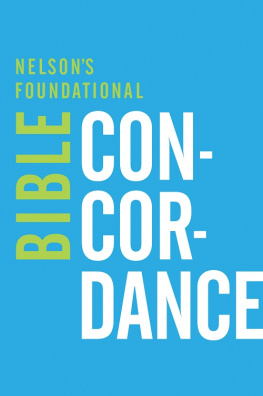
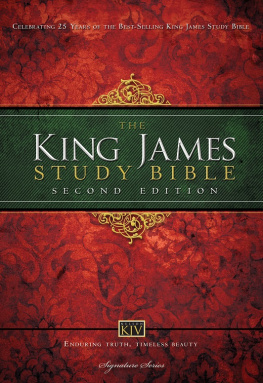
![Thomas Nelson - The NKJV Study Bible [Full-Color Edition]](/uploads/posts/book/79115/thumbs/thomas-nelson-the-nkjv-study-bible-full-color.jpg)
